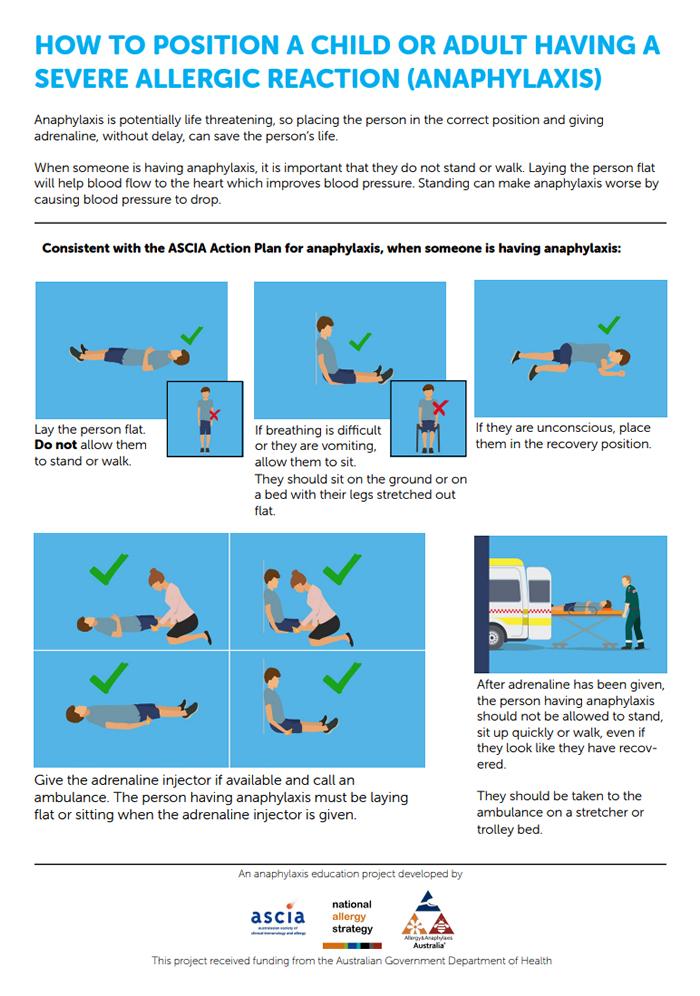Positioning
- Home
- Resources & Links
- Anaphylaxis Resources
- Positioning
Posture and positioning are important when experiencing anaphylaxis.
When someone is having anaphylaxis, it is important that they do not stand or walk, and are laid down flat to help improve blood pressure. If breathing is impaired when laying down, you should sit upright with legs outstretched.
Watch our short animation or read the information below about positioning someone experiencing anaphylaxis. Share with friends, family, and your broader community.
How to position a child or an adult having a severe allergic reaction (anaphylaxis)
How to position a child or adult having a severe allergic reaction (anaphylaxis)
We have created an infographic of how to position a child or adult having anaphylaxis.
This infographic can be downloaded and printed and included in first aid kits or used as a poster.


Lay the person flat - do not allow them to stand or walk.

If breathing is difficult or they are vomiting, allow them to sit. They should sit on the ground or on a bed with their legs stretched out flat.

If they are unconscious, place them in the recovery position.

Give the adrenaline injector if available and call an ambulance. The person having anaphylaxis must be laying flat or sitting when the adrenaline injector is given. Avoid seams and pockets when giving the adrenaline injector.

After adrenaline has been given, the person having anaphylaxis should not be allowed to stand, sit up quickly or walk, even if they look like they have recovered.
They should be taken to the ambulance on a stretcher or trolley bed.
How to position a baby or young child having a severe allergic reaction (anaphylaxis)
We have created an infographic of how to position a baby, young child or pregnant person having anaphylaxis.
This infographic can be downloaded and printed and included in first aid kits or used as a poster.

Hold them across your body, making sure their body is not upright. Standing or holding a baby or young child upright can make anaphylaxis worse by causing a drop in blood pressure.
A baby or young child may need to be held to calm and reassure them.
How to position a pregnant person having a severe allergic reaction (anaphylaxis)
A pregnant person should sit with their legs stretched out flat or be placed in the recovery position on their left side for good blood flow from mum to the baby.

Content updated March 2022
